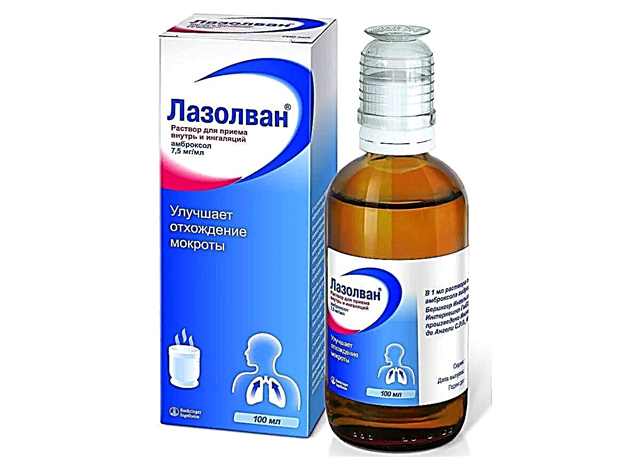Parents who begin to introduce foods into the baby's diet often wonder when to salt their baby's food. This is especially true for those mothers who try baby food from popular manufacturers, and it seems unpalatable to adults because of the lack of salt.

Lure
Salt properties in the digestive process
The salt that people are used to eating is a chemical compound of two important elements: sodium and chlorine. Both elements are needed by the body for normal functioning, their deficiency can lead to serious consequences.
Normal functioning of internal organs is impossible without sodium chloride. He is responsible for:
- the formation of hydrochloric acid in the stomach;
- providing conditions for the existence of erythrocytes in the blood;
- filling cells with water;
- maintaining normal pressure in blood vessels;
- coordination of muscle contractility;
- kidney function.
Interesting! With the help of a special saline solution (saline solution), intravenous administration of vital drugs into the human body by the drip method became possible, because blood plasma contains an identical amount of sodium chloride as an artificially created solution.
The danger of oversupply
The main danger of excessive salt intake lies in its main feature - it retains fluid. This prevents the kidneys from performing their filtering function and significantly increases blood pressure. Excessive salt intake leads to tissue edema, which puts additional stress on the cardiovascular system.
Note. The child's well-being also deteriorates significantly - moodiness due to headaches and sleep disturbances are observed.
Lack of sodium in the child's body
If the baby is breastfed or fed with an adapted milk formula, there can be no sodium chloride deficiency in the body. The required amount of salts enters it with breast milk or formula. There are situations that contribute to the disruption of the water-salt balance. Among them:
- increased body temperature;
- excessive sweating due to non-compliance with the temperature regime in the room;
- vomiting;
- diarrhea;
- dysfunction of the adrenal glands.
Important! At the first appearance of dangerous symptoms, the child needs to be helped to replenish the water-salt balance with the help of special means for oral rehydration.

Regidron
Does a child need salt under one year old
Due to the fact that an excess of salt in the body can lead to serious health problems due to functional immaturity of the kidneys, it is not necessary to additionally add salt to the baby's food in the first year of life. The permissible maximum consumption of this seasoning by infants is up to 1 g per day. He receives this amount with breast milk, formula, vegetables and other products introduced into complementary foods.
Doctor Komarovsky's recommendations
The popular pediatrician E. Komarovsky claims that 12 months is the age when a child can already be given salt, but in moderation. The amount of salt consumed depends not only on the age of the baby, but also on his weight.
Let's say the following calculation of daily consumption: 0.5 g of salt per 10 kg of baby weight. If mom gets a box with a finished product in her hands, and she wants to know whether it is possible to give it to the child or not, you should carefully study the composition. On the packaging, manufacturers indicate the amount of minerals included in the composition. The maximum allowable salt content per 100 g of the product is less than 1.5 g, sodium for the same amount of the finished product is less than 0.6 g.
When to add salt to food
Parents who ask the pediatrician about the age at which salt can be given to their child receive an unambiguous answer - after a year. It is important to observe the measure here. Even after adding seasoning to the taste of an adult, the food should still feel bland. To correctly calculate the amount of flavor enhancer for a baby dish, you can prepare a solution:
- Boil 200 ml of water;
- Add 20 g of salt;
- Stir well.
Half a teaspoon of the resulting solution can be added to a two-hundred-gram portion of the finished baby meal.
Salt varieties
Today on the shelves you can find a wide assortment of irreplaceable seasonings. The difference between the specimens is noted both in the amount of impurities and in the methods of extraction. Today you can salt your food with any of the following types:
- Stone. It is the most popular variety and is often referred to as a cookery or dining variety. It is extracted from natural salt layers.
- Refined. This is a processed rock salt that has undergone heat treatment and purification from impurities. Attracts housewives with its snow-white appearance.
- Iodized. This is rock salt fortified with iodine. It is useful for people with diagnosed iodine deficiency.
- Marine. It is obtained by evaporating sea water. Depending on the sea from which the seasoning was extracted, it may contain other minerals: magnesium, iron, calcium, potassium.
Important! The use of the iodized version will help to replenish the iodine deficiency only when cold dishes that do not require heat treatment are seasoned with it. Otherwise, iodine will evaporate without getting into the body.
Choosing the "right" seasoning
For children, it is permissible to use ordinary rock (table) salt. The form enriched with iodine can be used in the preparation of children's dishes only as directed by a doctor.
Refined salt is not suitable for baby food, because after heat treatment, various substances are added to it that increase the flowability and uniformity of the grains.
Prohibited salty foods
The modern industry uses salt as an irreplaceable flavor enhancer and preservative. Today it is difficult to find absolutely fresh goods on store shelves. The white seasoning significantly increases the shelf life of the product, and causes taste addiction, because of which the consumer wants to eat this product again and again.

Baby and fast food
Having decided the question of at what age it is sometimes possible to salt food for a child, parents forget about finished products that contain an initially unacceptable amount of seasoning.
Every adult should know the list of foods that cannot be fed to children:
- canned vegetables;
- sausages;
- fast food (chips, croutons, hamburgers, french fries, pizza);
- popular sauces (ketchup, mayonnaise);
- semi-finished products.
According to pediatricians, the later a child tries foods that are harmful to him, the better.
Consumption rates for children under one year by months
Pediatricians do not recommend adding salt to a child under one year old. You can make a table of the norms of consumption of seasoning in grams, in accordance with the age of the child.
Salt intake
| Age, months | Child's weight, kg | Salt consumption rate, g. |
|---|---|---|
| 0-6 | 2,9-6,5 | 0,5 |
| 6-12 | 7-9,5 | 0,5 |
| 12-36 | 10-15 | 0,75 |
If the baby does not eat fresh food
If the mother ignored the instructions of the pediatrician, who said when to introduce salt and sugar into the child's diet, then the baby, having tasted the seasonings, of course, will refuse unleavened food. In order for the taste of the complementary food to resemble the usual food, the mother will have to add breast milk or a small amount of mixture to the dish.

Correct feeding
You should not rush to introduce the baby to the adult table. Mom still has time to add salt to the dish. While the baby's internal organs are not yet ready, it is wise to follow the pediatrician's recommendations.



